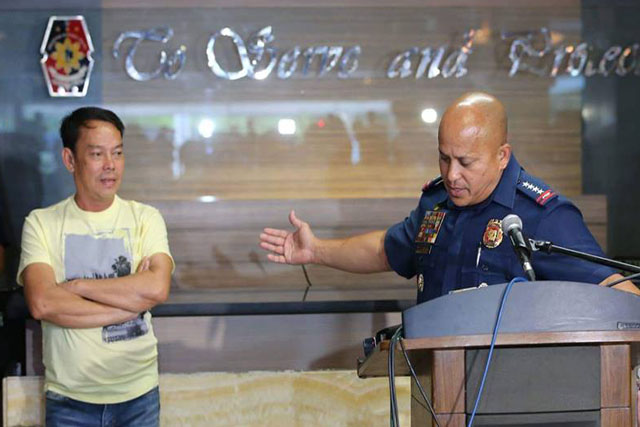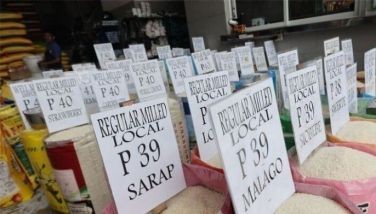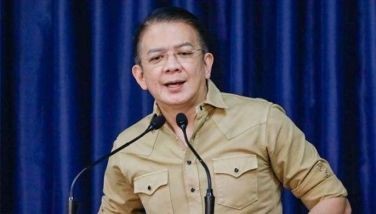Senators cast fear over 'puwede na' approach to vaccine choices
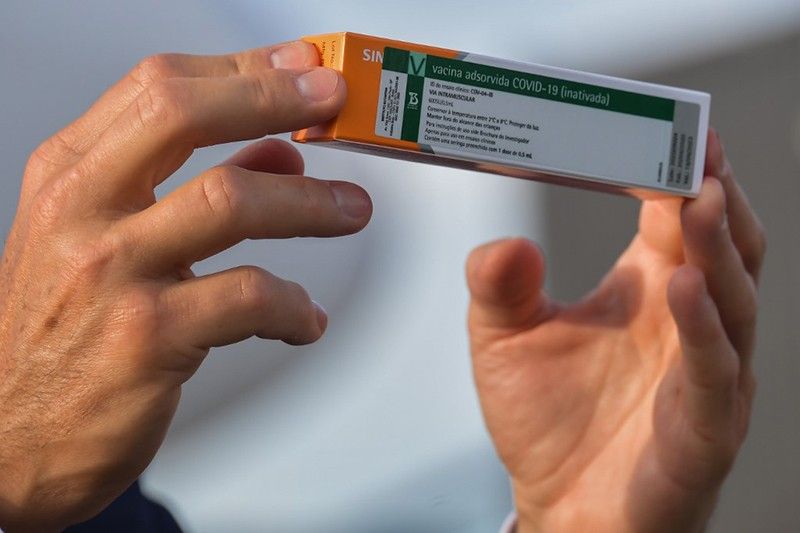
MANILA, Philippines — Amid concerns that the national government is purchasing less effective China-made vaccines at a higher cost, two lawmakers said Sunday that the national government's insistence on purchasing China's Sinovac jabs would be at the expense of vaccine confidence and could lead to corruption later on.
Sen. Panfilo Lacson in a statement pointed out that the differences in pricing for Sinovac vaccines, which the government has purchased 25 million doses of, "may smack of corruption," noting that it may cost as little as $5, about P240, per dose, while costing an inflated $38, or more than P1,800, in the Philippines. Presidential spokesperson Harry Roque said earlier Sunday that the vaccines would only cost P650 per dose.
To recall, the senator earlier questioned the contradicting statements being issued by vaccine czar Carlito Galvez, who claimed earlier that the government chose the vaccines because they were "cheaper." Data acquired by Sen. Sonny Angara's office in November, however, showed that the China-made jabs were actually the second most expensive of the vaccines being acquired by the country. According to no less than the Department of Health, Sinovac vaccines would cost P3,629.50 for two doses.
"If it’s true that government is now dropping the price of Sinovac vaccine from P1,847.25 per dose to only P650, the Senate has probably done our share to save our people billions of pesos in the country’s vaccination program. Netizens can pat themselves on the back," the former police chief said in a series of tweets posted on his Twitter account.
"The difference in prices of Sinovac vaccine at US$5, US$14 and US$38 reminds me of an old story about how corruption is committed in three Southeast Asian countries - UNDER the table, ON the table, and INCLUDING the table," he added.
RELATED: Claiming all jabs are the same, Duterte defends Sinovac purchase
Pangilinan: Philippines shouldn’t settle for ‘pwede na’
Sen. Francis Pangilinan also slammed the "political goodwill" which he said was used as a basis in choosing the vaccine for the national government's vaccination program instead of, he said, scientific evidence.
This comes after the senator had already called on the government to call off its deal with the China-based pharmaceutical company.
"There is no clear number of how many vaccines will be delivered to us and will be injected by the middle of February, even from the Covax facility. It is said to be one million in March, and two million in April. But when we asked the IATF about the vaccine target from February to April, there were no ‘definitive numbers’, even those in Covax,” he said in a statement, urging the national government to submit reports to the Senate on the vaccine roll-out effort, including the targets and the list of resources to be used.
"A major factor is that our people are informed, and that they know that we are getting the best. We are not settling for second best vaccines for our citizens given this pandemic," he said.
As of the Department of Health's latest case bulletin issued Sunday afternoon, the national caseload in the Philippines has breached 500,000 patients of the pathogen. Exactly 24,691 of these are still classified as active cases.
Why does this matter?
- Conclusive figures on the efficacy of Sinovac's vaccine remain elusive and unclear to date, though clinical trials conducted in Brazil yielded 50.4% efficacy compared to other jabs including that of Pfizer at 95% and AstraZeneca at 70%. It had been the subject of concern at home, even from lawmakers, who had criticized the move to procure 25 million of Sinovac's doses.
- Survey results by the Social Weather Stations also suggest that some 47% of the public would not be willing to be vaccinated due to concerns on the safety of the jabs, which Palace, instead of allaying fears, had responded to in saying there would be no other choice.
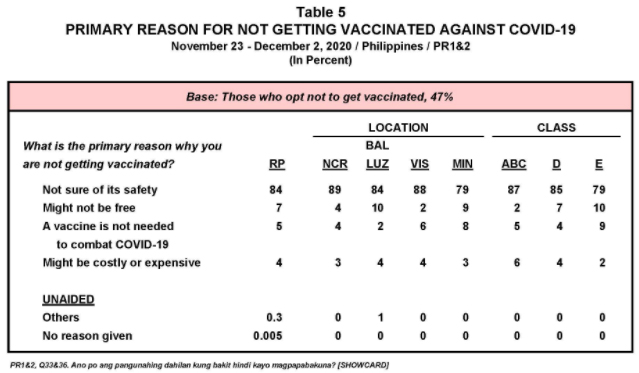
“Bukod sa 47 percent na ayaw magpabakuna, meron pang 27 percent na di siguradong magpapabakuna. Kaya kailangan natin ang pinakaligtas at pinakamabisang bakuna para sa ating mga kababayan. Hindi pwedeng ‘pwede na’,” Pangilinan said.
(Apart from the 47 percent who do not want to be vaccinated, there are also 27 percent who are not sure about getting vaccinated. This is why we need the safest and most effective vaccine for our countrymen. We can't settle for 'good enough.')
- Administration officials continue to defend the government's choice to purchase the vaccine of Sinovac Biotech Ltd., a privately owned corporation based in Beijing, China, for its national inoculation program amid mounting concerns about the vaccine’s price and efficacy.
- Vaccine czar Carlito Galvez Jr. said at a Senate probe Friday that the government can still opt out of its deal for Sinovac vaccines, which have recorded a 50.4% efficacy rate overseas, if it so chooses.
“Sinovac has a track record of bribery, yet why insist on dealing with them?" Lacson asked in an interview aired over DWIZ on Saturday.
"Considering all these, can we blame the lawmakers and even our countrymen why they express suspicion in the government’s vaccination program?" he added.
— with reports from Bella Perez-Rubio and Christian Deiparine
The national government has so far secured two official deals for COVID-19 vaccine supplies in the Philippines, one with Chinese pharmaceutical company Sinovac and another with the Serum Institute of India.
Watch this space for bite-sized developments on the vaccines in the Philippines. (Main image by Markus Spiske via Unsplash)
Health Officer-in-Charge Maria Rosario Vergeire says the general population may now get their second booster jab.
"We're just waiting for the release of implementing guidelines, then we'll start rolling out our second booster for the general population," she says. — Gaea Katreena Cabico
Amid questions on vaccines being administered, the Department of Health assures the public all doses are safe and effective as the “process of extending shelf life goes through thorough stability studies.”
“The government ensures that every vaccine that is injected with an extended shelf life has gone through studies, and is still safe and effective against COVID-19,” it adds.
Government must increase vaccination capacity across the Philippines in anticipation of a surge of COVID-19 cases caused by the Omicron variant of the corona virus, Sen. Risa Hontiveros says.
She says local government units and the private sector can work together to put up more vaccination centers and deploy more vaccination teams to get more people inoculated against COVID-19.
"The active COVID cases have nearly doubled in three days. The positivity rate is almost four times the ceiling set by the World Health Organization. Huwag na nating hintayin na sobrang lumala pa ang sitwasyon bago tayo gumawa ng paraan para mapabilis ang ating pagbabakuna."
FDA chief Eric Domingo says that its agency has given emergency approval for the use of the Pfizer-BioNTech COVID-19 vaccine for children ages 5 to 11.
The United States immunized around 900,000 children aged five-to-11 against Covid in the first week the Pfizer vaccine was authorized for them, a White House official says Wednesday.
Roughly 700,000 more have made appointments at pharmacies, White House Covid coordinator Jeff Zients tells reporters.
"The program is just getting up to full strength," he says, adding most of the shots were given in the last couple of days alone. — AFP
- Latest
- Trending





















